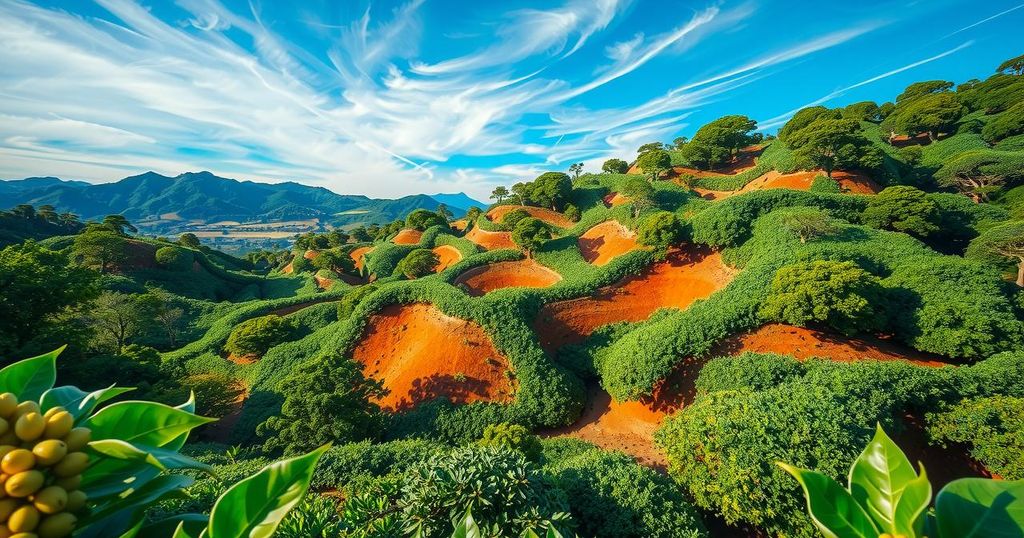Impact of Insufficient Rain on Brazilian Coffee Prices and Production
Brazil’s coffee prices have risen following insufficient rainfall affecting yields. Forecasts suggest global coffee production will increase, but Brazil’s output is projected to decline, severely impacting inventories and leading to successive production deficits. The current situation raises concerns for stakeholders in the coffee market.
Brazil’s coffee prices have recently shown a moderate increase, attributed to inadequate rainfall and a robust Brazilian real. On Wednesday, May arabica coffee climbed by 1.89%, closing at a gain of +7.25, while May robusta coffee rose by 1.06%, gaining +58. According to Somar Meteorologia, the Minas Gerais region, the largest arabica coffee producing area, received only 30.8 mm of rainfall, about 71% of the historical average during the week ending March 15.
Forecasts from the Brazilian real indicate a 4% increase in global coffee production for 2024/25, totaling 174.855 million bags. Additionally, arabica production is expected to rise by 1.5% to 97.845 million bags, whereas robusta output may increase by 7.5% to 77.01 million bags. However, the USDA’s FAS projects that ending stocks for 2024/25 will decline by 6.6% to a 25-year low of 20.867 million bags, down from 22.347 million bags for the previous year.
On November 22, the USDA’s FAS anticipated Brazil’s total coffee production for 2024/25 at 66.4 million metric tons, lowered from a prior estimate of 69.9 million metric tons. Their projections also suggest that Brazil’s coffee inventories may decline to 1.2 million bags by the season’s end in June, a decrease of 26% year-over-year.
Looking ahead to the 2025/26 marketing year, Volcafe reduced its estimate for Brazilian arabica coffee production to 34.4 million bags, a significant drop from September’s estimate due to the severity of ongoing drought conditions, revealing a novel deficit of 8.5 million bags for arabica coffee. This marks a widening from the previously anticipated 5.5 million bag deficit for 2024/25, indicating the fifth consecutive year of supply deficits.
In summary, Brazil’s insufficient rainfall has led to an increase in coffee prices, while projections indicate a worrying trend of declining coffee production and inventories. Despite forecast increases in total global coffee output, Brazil’s production estimates remain negatively impacted by drought conditions, suggesting ongoing challenges for the coffee industry. Investors and stakeholders should stay informed, as these developments may continue to influence coffee market dynamics.
Original Source: www.tradingview.com




Post Comment